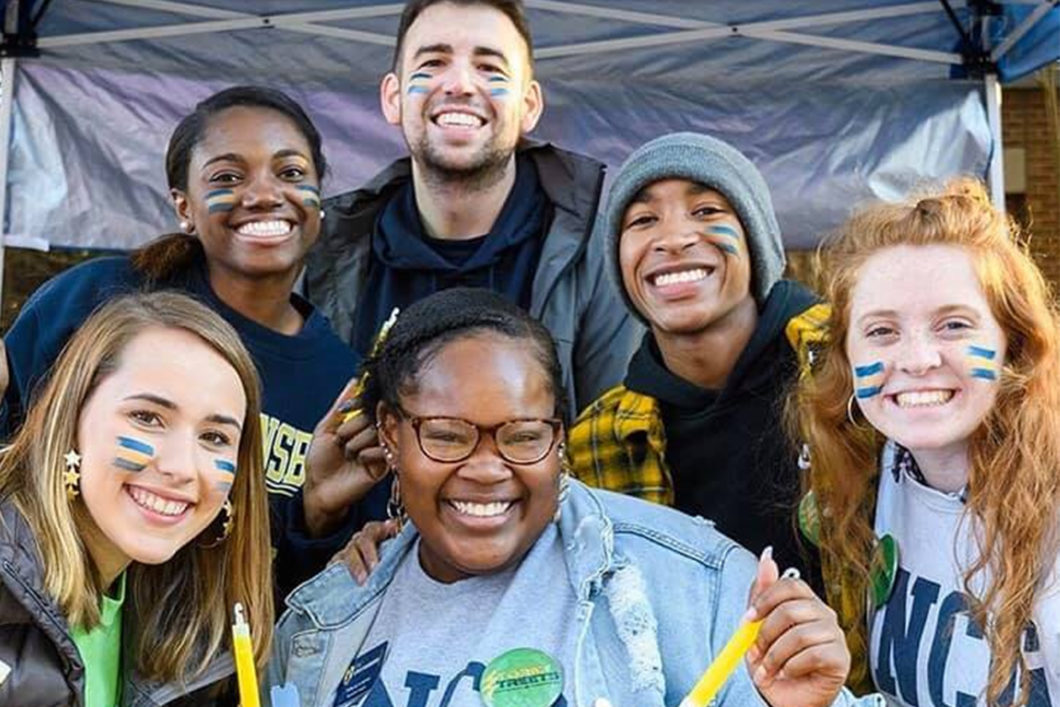I’m a first-generation college student. My dad received a high school diploma and my mom took some community college courses. None of my grandparents went to college.
Although neither of my parents, nor my grandparents, received a higher education, they raised me to believe college was important. It was something that’d help me become the most well-rounded and successful person I could be … something they really wanted for me.
Getting Into College
Since my parents had never been to college, the application process was foreign to them. Because of this, it took me longer to submit my applications. I was a bit more on my own while figuring out the process and making sure I had all the necessary materials, including financial aid. It was especially difficult when drafting my college essays, but I was lucky to have my high school teachers and counselors to help.
I applied to several colleges and got accepted into three. I was thrilled but also extremely nervous about making the “right” choice. Which university should I pick?? Everyone told me to pick a school that felt most like home and where I could best envision myself.
When I finally chose the University of North Carolina, Greensboro, I immediately started looking into clubs and other opportunities they offered. It was important to me to build a strong support system, especially as the first person in my family to take on this new adventure.
Cue the Panic!
As soon as my first semester got underway, I felt lost. Studying in college was different from high school, and I found it hard to stay on top of my coursework while still maintaining a personal life. And although performing arts was a passion of mine, I started second guessing my decision to pursue arts administration. I was overwhelmed, especially because I was also working two jobs.
So, I began working with my campus’ Student Support Services (SSS)—a student-led support group that helps first-generation college students (FGCS) with:
- personalized academic counseling,
- individual instruction,
- tutoring in two general education courses for first-gen students,
- time management,
- financial aid literacy,
- grad school and professional guidance, and
- career coaching.
Choosing the CSD Major
During a career counseling session with my coach, she suggested I look into other career opportunities. After some research, I thought I might be interested in speech-language pathology. So, I talked with one of the CSD professors and she suggested I take an introductory film class about communication disorders.
I took the course that spring and completely fell in love. Not only was it truly inspiring and motivating, but it showed me how I could blend my personality of being a “people person” with wanting to be in a profession that helps others. I applied to the CSD program for the following academic year, and was thrilled to be accepted!
During my first year of the program, I found that I could even combine my love of theatre with speech therapy—using theater to help clients build confidence, express their feelings, help set goals, and problem solve.
Tips for First-Gens
As a first-generation college student, you may feel intimidated—by the coursework, time management, balancing your school and personal lives, and finding a sense of community. If you’re struggling with any of these issues, here are a few tips I learned during my experience:
Stay Organized
- Whether it’s a physical planner or a virtual planner, make sure you use one to keep track of important dates and schoolwork.
- Keep previous coursework—don’t get rid of it once the semester is over.
- Label your binders and make sure you organize your schoolwork as well. That way, if you need to reference something from a past class, you’ll know where to find it.
Seek Out Opportunities
- Join organizations on campus. This will help you find like-minded friends and build your support-network. It’ll also help you start building your resume.
- Take on leadership roles. As my NSSLHA chapter’s previous junior representative, I had the opportunity to build relationships with professors and other students within my program. I’m now the chapter’s president and have gained so many skills that’ll take me into grad school and my career.
- Observe as many audiologists and/or speech-language pathologists as you can. This will open your eyes to all the opportunities these professions provide.
- Volunteer within your community.
Network
- Get to know your professors. The more they know you, the more willing and able they’ll be to write your future letters of recommendation.
- Go to conferences. Whether it’s the annual ASHA Convention or state associations, you’ll meet so many new people who may be able to provide advice or open doors for you.
Never Give Up
As a first-generation college student, it’s important to know what support systems are available to you. It’s also important to get involved in campus organizations. College can be overwhelming, and these support systems will help you navigate this brand-new world!
One day, as an SLP, I hope to use my experience to help other students through similar situations—opening doors for them, like my teachers opened doors for me.

